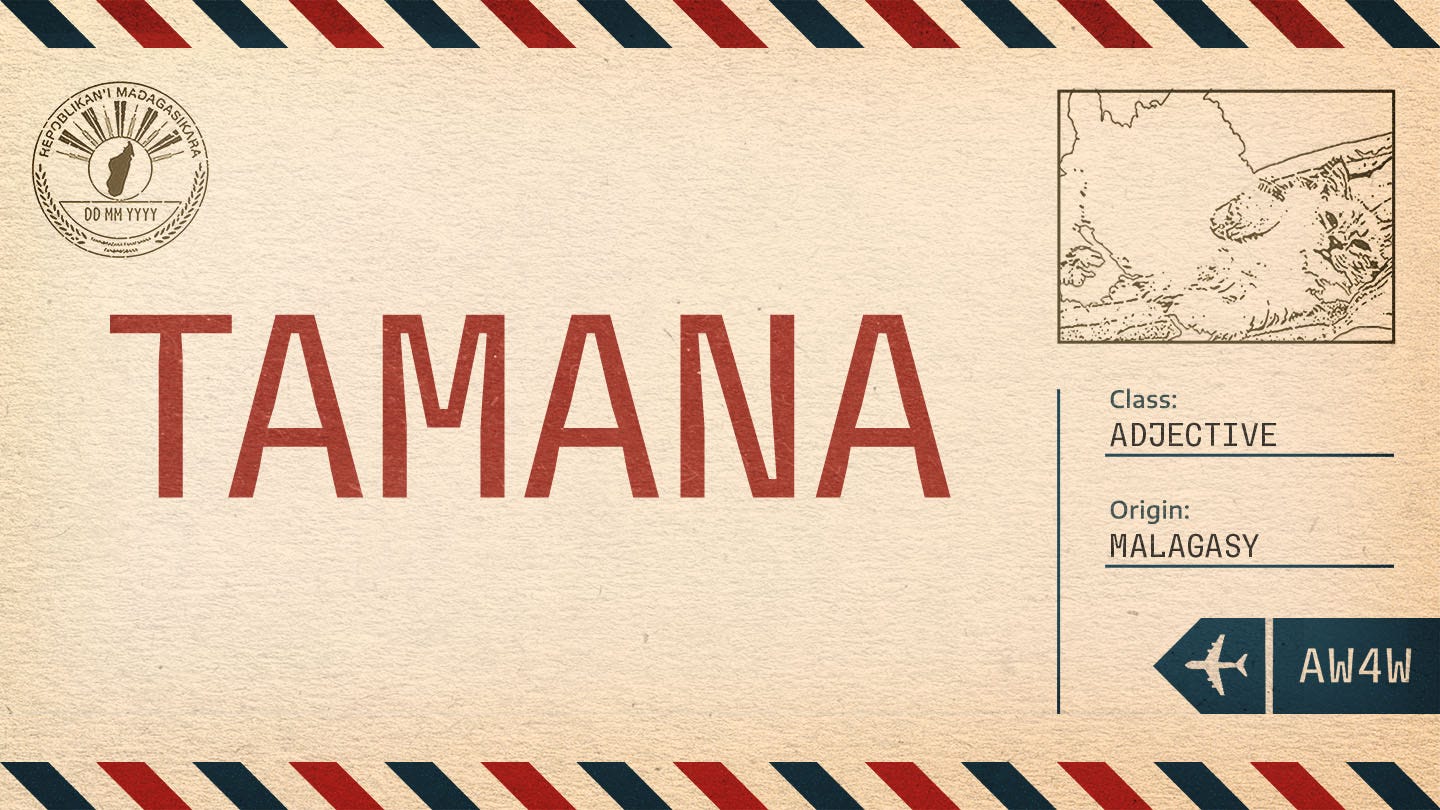A Malagasy Word to Beat the Lonely Season
Recently I got a party invite attached to a warning… from the surgeon general.
The invitation was for a neighbor’s potluck to which I’d forgotten to RSVP. This second follow-up invite included a link to a 1500-word article in the New York Times on the health benefits of potlucks, and the US surgeon general’s initiative to help us have more of them. Come! Make merry! Meet your neighbors… and lower your risk of heart disease, dementia, and stroke!
According to the article, the surgeon general will provide resources and tools to help more Americans eat together, starting in January (if the program is not killed by Trump’s pick for SG, Dr. Janette Nesheiwat, whose policy position on potlucks is unclear.)
The US government is not alone in its effort to make us feel less alone. “Minister of Loneliness” is an actual job title in the UK and Japan. The problem is real. An American friend of mine who moved back to Boston after years living in Paris finds it inordinately stressful to invite a co-worker to lunch in the US. In France, laws against eating lunch at your desk and cultural pressure do much to discourage the eat-and-email, but the US has no such legislation nor lunch culture to prevent people from powering through their to-do list during lunch. And so, an invitation can feel like an imposition. A demand to carve precious blocks of time from someone’s optimized schedule.
Follow that logic to its natural conclusion, and you end up getting party invites slapped like a pack of cigarettes with a warning label from the SG.
In the end I did go to my neighbor’s potluck. I had a great time. I think I was the last to leave. There’s a word in Malagasy—the official language of Madagascar—for being so comfortable in a place that you want to stay. Jullian Androkae, our graphic designer, grew up on the southern coast of Madagascar, hearing this word:
“Tamana” is getting absorbed in a long conversation with a stranger and not noticing the time flying by. It’s never wanting to get up from a friend’s couch. It’s being out with friends and knowing the last train home is at 11, but ordering dessert anyway at 10:45. English doesn’t quite have a word for this. “Losing track of time” is vaguely chastising. Tamana is something to relish. Likewise, the English phrase “having a comfortable time” is clunky and dull, and fails to capture the narcotized feeling of being in the present that Jullian’s definition of the word evokes.
All this got me wondering what it means to live in a true hospitality culture. The kind of place where you don’t need a doctor’s admonition to accept a dinner invite. The kind of place where - if you do kick off your shoes and settle a little too comfortably into another person’s space- you don’t have to feel guilty about it. You might even feel proud. Because when you have a word for something, you can value it on its own terms, instead of what it’s not. And tamana, says Jullian, is nothing to be ashamed of. On the contrary, his tamana moments are the ones he’s most nostalgic for.
My brief interview with Jullian is below. Perhaps you can think of this conversation as a kind of carrot to the Surgeon General’s stick. I’m no doctor, warning you to show up at more holiday parties in order to live longer. But I am offering a small word to mark - and even marvel at - those heedless moments of lost time that can slip unnoticed into tomorrow.
Do you have a word in mind for a future post? Share it with our team and win a complementary one year subscription. More info below!
GW: Tell me about Tamana.
Jullian: So yeah. We recently got a cat. And you know how pets can be a little bit fussy the first few days? Our cat got very comfortable. Just sitting next to us for like an hour and not really moving. Sleeping and just kind of paying attention to what we're doing. And I was like — “Oh this cat is so tama right now.”
Note: Tama is the word for Tamana in the Vezo dialect, which Jullian speaks. Pronouncer for both words below…
Jullian: Tama(na) is the word to describe somebody that is staying longer in a place because they feel comfortable. Tama would be a compliment to a host. Like, look how comfortable your guests are now. Look how tama they are.
GW: If I, as a host, want my guests to feel tama, how is that different than my wanting my guests to enjoy themselves or to feel at home?
Jullian: I think there is definitely a key difference. The important part is that the person got lost into the present moment because they were so happy, to the point of forgetting and staying longer than expected at the dinner party or like getting themselves late to the next appointment.
GW: It's not just about making guests feel good, it’s making them forget their responsibilities and just be present with you in that moment.
Jullian: Exactly. Yes. You got it.
GW: What’s a story when you’ve felt tama?
Jullian: I grew up in Toliara. You could think of it as like a small American town, [in that] there aren’t a gazillion things to do, but I had a lot of cousins around my age. I remember I was like 11 or 12, and we were playing video games for four hours, and it’s getting dark. My mom comes in and says to my cousin, ‘wow, you’re still here, you must have been really tama because you haven’t even seen that the sun has set.” And I remember sharing eye contact with my cousin and being like, ‘yeah, this couch is really comfortable. And we really did not see [the time] passing. Oh no, we have school again the next day, and we’re not going to be together again like this for a while.’ These experiences are already nice on their own, but when you express it with tama, it just brings some dynamism to that feeling and how nostalgic those memories are.
GW: What would someone who learns the word tama also learn about you?
Jullian: I suppose that I care for that feeling. Just thinking about how I host people or how I meet them in their home, you know, not only do I let myself be comfortable in those situations, but also try to communicate with my actions that I am in fact tama thanks to what they’re doing for me.
GW: Can tama be used negatively, too? Like, don’t be so tama, get off your lazy ass, you're just getting a little too comfortable here?
Jullian: Uh, no, no. We have other words to shame people out of being lazy. (Laughs.)
Win a free year of paid posts! Share your untranslatable word.
Ever noticed that features on ‘untranslatable’ words - global words for emotions and experiences with no equivalent in the English language - almost never speak to a regular person who lives and loves that word? Help me change that. Email me a short voice memo about your favorite non-English word. Why is it hard to translate? And why is it worth the time to unpack? Or fill out this brief five question survey. If your word is chosen for a post, you’ll get a complimentary year of Rough Transition paid posts, subscriber-only livestreams and 2025 meet-ups.
Feeling ‘tamana’ after this post?
Consider purchasing a paid subscription to Rough Transition for yourself or a friend. And share this post with a friend you think will enjoy it.






Can I read this? Yes. Did I still go with the voice-over? Hell yes. Missed hearing your voice every other week!
Uplifting, inspiring and beautiful. So perfect for this time of the year. Thank you for giving me a new word to describe so I can describe how I feel better!